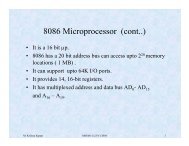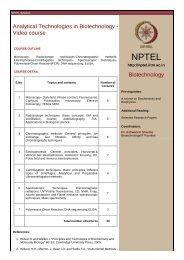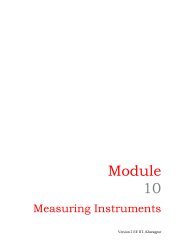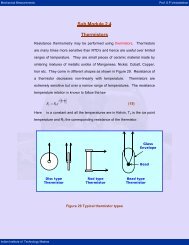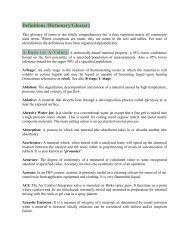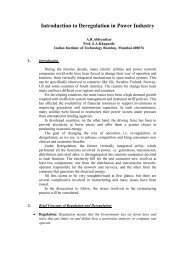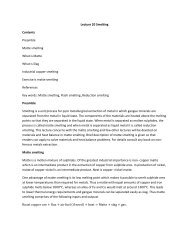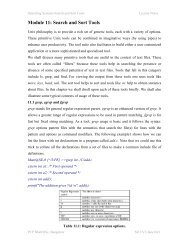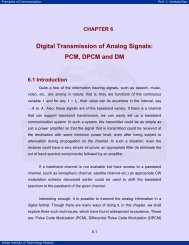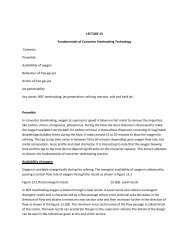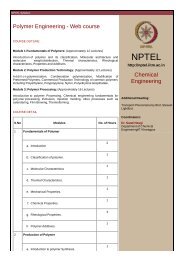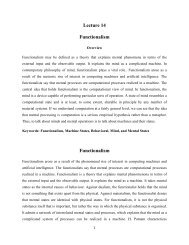Module I Oxidation Reactions - NPTel
Module I Oxidation Reactions - NPTel
Module I Oxidation Reactions - NPTel
You also want an ePaper? Increase the reach of your titles
YUMPU automatically turns print PDFs into web optimized ePapers that Google loves.
NPTEL – Chemistry – Reagents and Organic reactions<br />
Me OH<br />
MeO 2C<br />
O<br />
N<br />
N<br />
O<br />
CrO 3 • (pyridine) 2<br />
CH 2Cl 2<br />
O<br />
OH<br />
CrO3 • (pyridine) 2<br />
CH2Cl2 Me<br />
H<br />
OH<br />
OH<br />
n-Am<br />
OTHP<br />
CrO 3 • (pyridine) 2<br />
CH 2Cl 2<br />
1.3.5 Collins-Ratcliff <strong>Oxidation</strong><br />
CrO 3 • (pyridine) 2<br />
CH 2Cl 2, C<br />
Scheme 6<br />
Me H<br />
MeO 2C<br />
Joint initiative of IITs and IISc – Funded by MHRD Page 30 of 122<br />
N<br />
N<br />
O<br />
O<br />
Me<br />
H<br />
H<br />
O<br />
O<br />
n-Am<br />
OTHP<br />
A 1:2 mixture of CrO3 and pyridine in dichloromethane (DCM) is known as Collins<br />
reagent or Collin-Ratcliff reagent. It also oxidizes the primary alcohols and<br />
secondary alcohols to aldehydes and ketones, respectively (Scheme 6). This<br />
reaction works under mild reaction condition without affecting other functional<br />
groups and the only disadvantage is the excess use of the reagent.<br />
1.3.6 Pyridinium Dichromate (PDC) <strong>Oxidation</strong><br />
Pyridinium dichromate (PDC), (C5H5NH + )2Cr2O7 2- , oxidizes alcohols under<br />
neutral condition without affecting other functional groups (Scheme 7). Primary<br />
alcohols are oxidized to aldehydes with excellent yield. Allylic alcohol can be<br />
-unsaturated carbonyl compounds. Excellent yields are obtained<br />
by the oxidation of secondary alcohols by using trimethyl silyl peroxide and PDC<br />
(Scheme 8).<br />
O<br />
O<br />
H<br />
O



